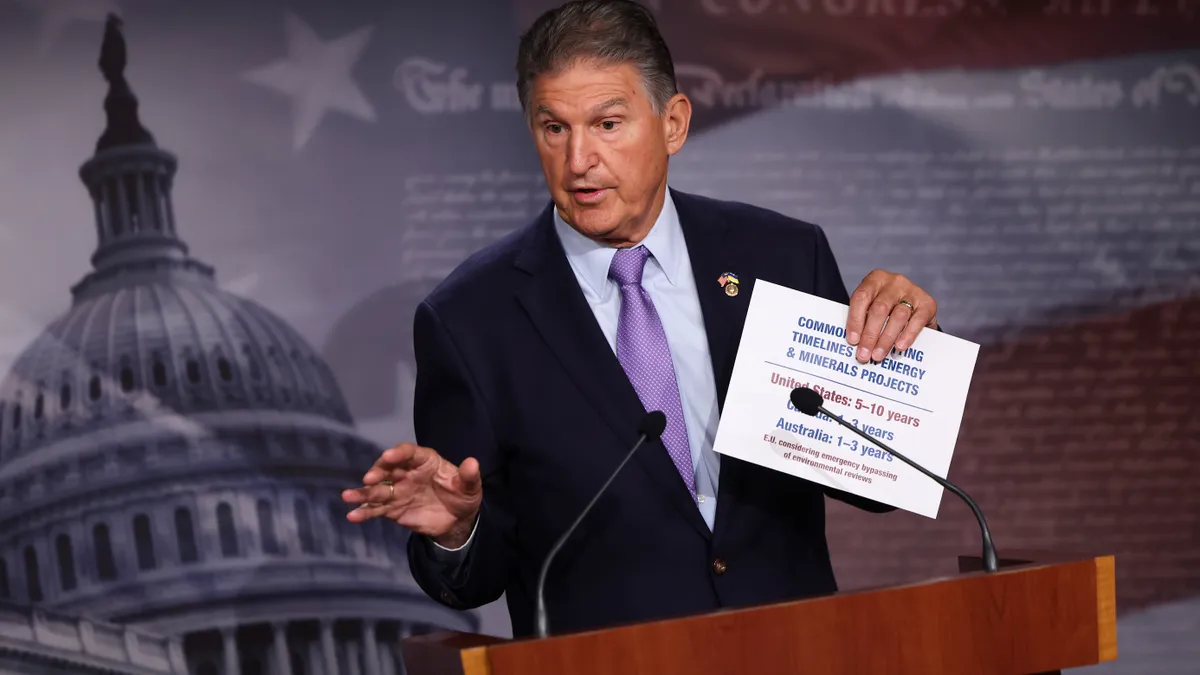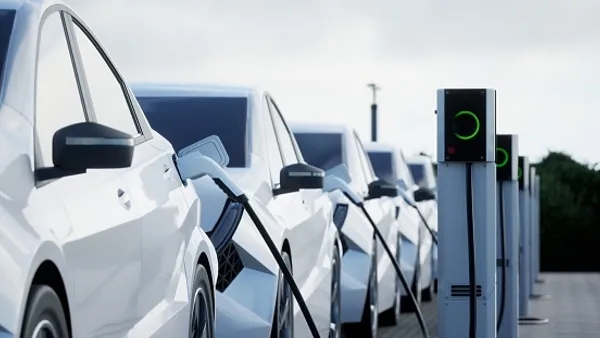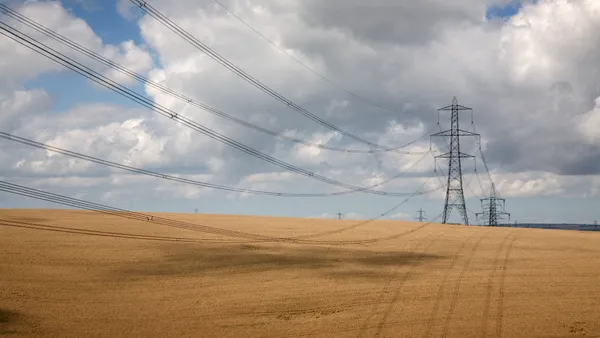Dive Brief:
- Sen. Joe Manchin, D-W.Va., on Tuesday withdrew a controversial energy permitting reform bill just hours before it was scheduled to be voted on by the Senate as part of a short-term package to fund the federal government through mid-December.
- The bill would have advanced the long-delayed Mountain Valley natural gas pipeline and given the Federal Energy Regulatory Commission more power to approve proposed transmission projects.
- Progressives opposed the bill over concerns it would weaken environmental reviews. Republicans abandoned the measure for a variety of reasons, including concerns it would allow the federal government too much power in allocating the costs of new transmission development.
Dive Insight:
Manchin’s permitting reform had some support from both sides of the aisle, but a late push by conservatives on Tuesday has stalled the measure, at least for now.
“Senate Republicans have made clear they will block legislation to fund the government if it includes bipartisan permitting reform, because they’ve chosen to obstruct instead of work in a bipartisan way to achieve something they’ve long claimed they want to do,” Senate Majority Leader Chuck Schumer, D-N.Y., said in a statement.
The Senate voted to approve the funding bill and avoid a government shutdown after the measure was removed. Inside-the-Beltway politics may have played a factor in Manchin withdrawing the Energy Independence and Security Act of 2022, according to Vox, following the moderate’s support of President Joe Biden’s Inflation Reduction Act, which included billions for clean energy.
One major sticking point for Republicans was transmission permitting reforms they said would give FERC too much power.
“The Manchin permitting bill [is] problematic for a number of reasons, but the biggest issue (particularly for Texas) is section 221 on transmission,” Sen. John Cornyn, R-Texas, wrote in a tweet. That section “includes sweeping amendments to the Federal Power Act, which increases the federal government’s power to determine when and where major high voltage transmission lines will be built and who shall pay the costs.”
Manchin’s bill would have allowed the Department of Energy to designate proposed transmission projects to be in the national interest and allowed FERC to allocate the costs of those projects to ratepayers that benefit from them.
The bill also aimed to speed environmental reviews for major energy and natural resource projects under the National Environmental Policy Act. And it would have required federal agencies to approve the Mountain Valley natural gas pipeline, which is set to run from Manchin’s home state to southern Virginia.
“In the wake of the passage of the first significant federal climate bill, it is clear that there is no appetite for new fossil fuels in most of this country,” Mike Tidwell, executive director of CCAN Action Fund, the advocacy arm of the Chesapeake Climate Action Network, said in a statement.
Tidwell called Manchin’s permitting reform proposal “a dying wish of the fossil fuel pipeline industry.”
Advocates for environmental justice communities called the plan “ill-advised.”
“Our clean energy future must be built with communities at the center, and no communities should be sacrificed for the sake of forcing through a harmful and unnecessary pipeline,” Center for American Progress Senior Vice President for Energy and Environment Policy Christy Goldfuss said in a statement.
Opponents of fossil fuel infrastructure say they are pleased with the win but expect it is only temporary. Politico reports that Sen. Shelley Moore Capito, R-W.Va., also has a permit reform proposal in the works, and Manchin will have other opportunities to push his own bill again later this year.
“Make no mistake, we expect more battles to come,” Earthjustice President Abigail Dillen said in a statement. “And we will fight every effort to put fossil fuels over people and weaken laws that are more important than ever to building a just and equitable future.”















